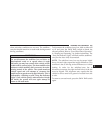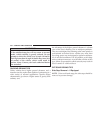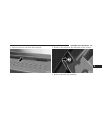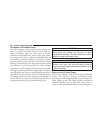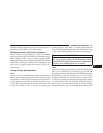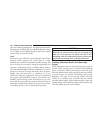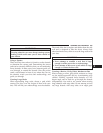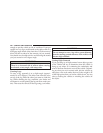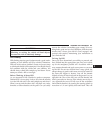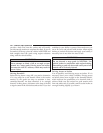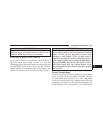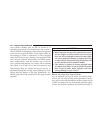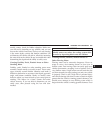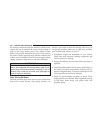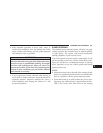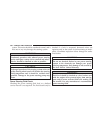
CAUTION!
Winching or rocking the vehicle off hard objects
increases the risk of underbody damage.
Hill Climbing
Hill climbing requires good judgment and a good under-
standing of your abilities and your vehicle’s limitations.
Hills can cause serious problems. Some are just too steep
to climb and should not be attempted. You should always
feel confident with the vehicle and your abilities. You
should always climb hills straight up and down. Never
attempt to climb a hill on an angle.
Before Climbing A Steep Hill
As you approach a hill, consider its grade or steepness.
Determine if it is too steep. Look to see what the traction
is on the hill side trail. Is the trail straight up and down?
What is on top and the other side? Are there ruts, rocks,
branches or other obstacles on the path? Can you safely
recover the vehicle if something goes wrong? If every-
thing looks good and you feel confident, shift the trans-
mission into a lower gear with 4L (Low) engaged, and
proceed with caution, maintaining your momentum as
you climb the hill.
Driving Up Hill
Once you have determined your ability to proceed and
have shifted into the appropriate gear, line your vehicle
up for the straightest possible run. Accelerate with an
easy constant throttle and apply more power as you start
up the hill. Do not race forward into a steep grade; the
abrupt change of grade could cause you to lose control. If
the front end begins to bounce, ease off the throttle
slightly to bring all four tires back on the ground. As you
approach the crest of the hill, ease off the throttle and
slowly proceed over the top. If the wheels start to slip as
you approach the crest of a hill, ease off the accelerator
and maintain headway by turning the steering wheel no
more than a 1/4 turn quickly back and forth. This will
5
STARTING AND OPERATING 361



